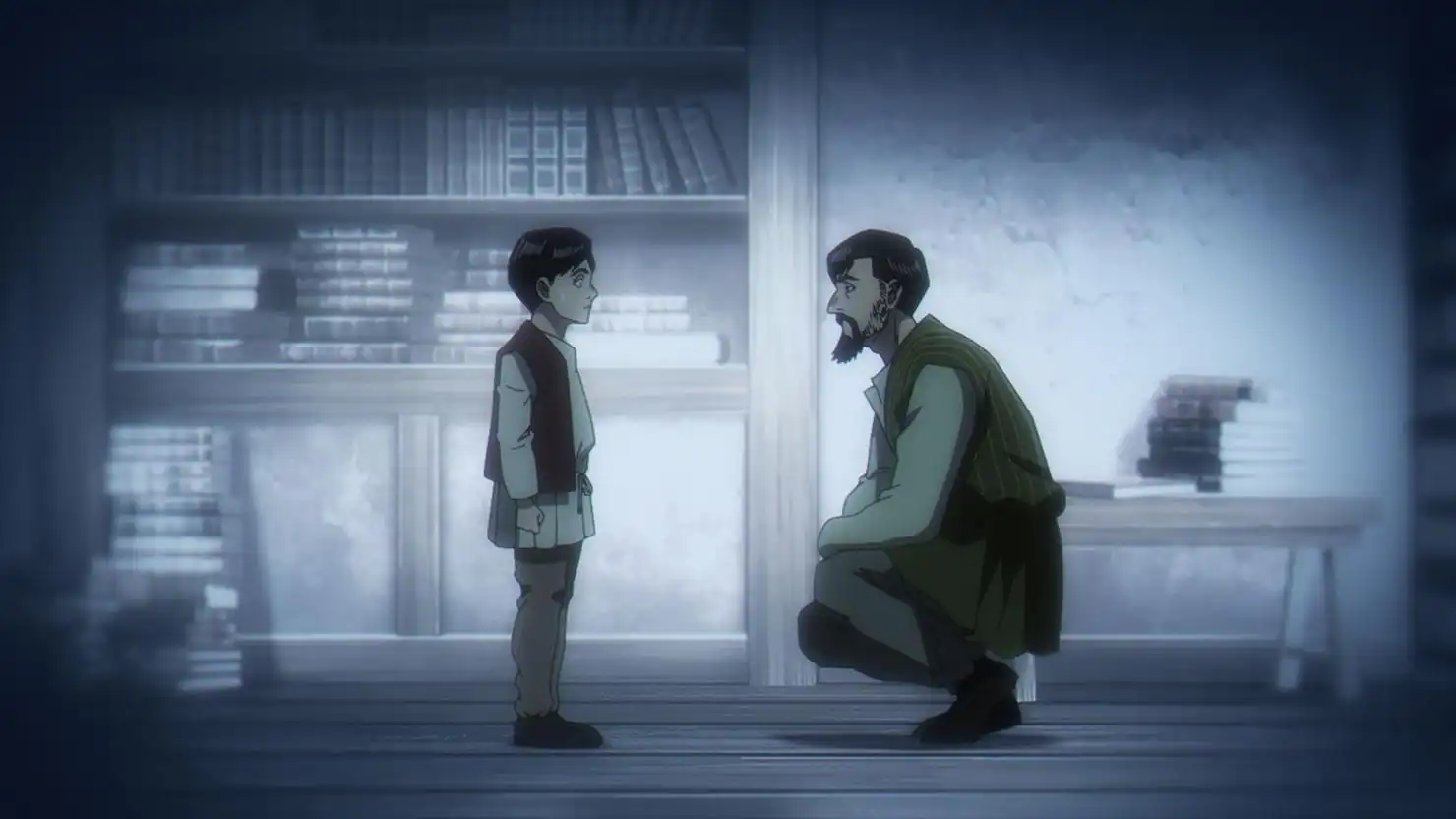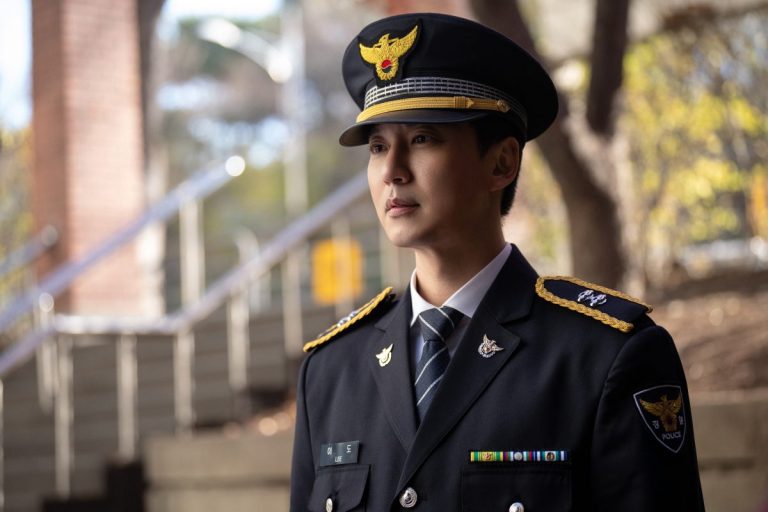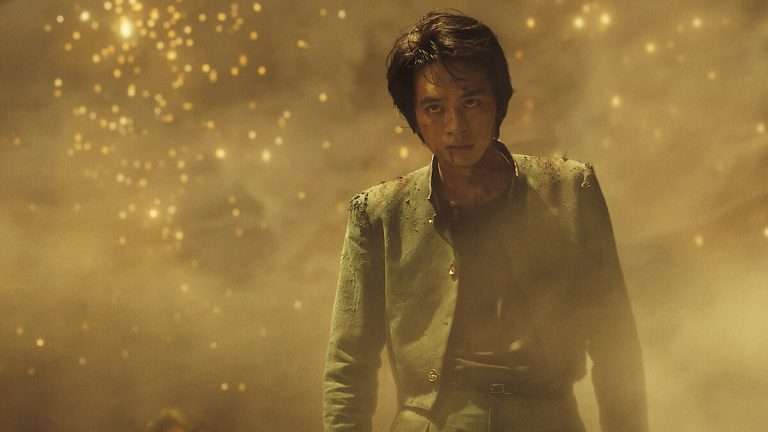In Orb: On Movements of the Earth (Season 1, Episode 24), titled “Thaumazein,” the conversation between the baker and Albert unfolds with quiet intensity. Although Albert insists he has no interest in attending university, the baker sees through his words, recognizing the truth he refuses to admit. With wisdom drawn from Aristotle and Socrates, the baker gently challenges Albert’s perspective, hoping to guide him toward self-awareness.
Meanwhile, a newly established church becomes a regular stop on the baker’s delivery route, with the priest as his latest customer. When Albert arrives at the church to drop off the bread, he hesitantly steps into the confessional, searching for the priest. The priest, sensing Albert’s inner turmoil, encourages him to unburden his heart. At first, Albert hesitates, uncertain about sharing his past. But as the silence stretches between them, he finally begins to speak—unraveling the story of his childhood, piece by piece.
This article contains spoilers.
Orb: On Movements of the Earth (Season 1) Episode 24 “Thaumazein” Recap:
The story continues with the conversation between the baker and Albert. When the baker asks about the astrolabe, Albert says he wants to sell it. Listening to the answer, the baker reveals a secret. The truth is the baker did not sell the baked goods as per Albert’s calculations, but made bread with higher quality raw materials. However, he sold it at a lower price so the authorities don’t get suspicious. The baker does this because he loves to bake and sell. If Albert thinks he is satisfied with making a living, then Albert lies to himself. Long ago, Albert’s father had told the baker about something Socrates and Aristotle had said. Each individual possesses some talent that they need to realize. Each person or thing has a purpose in this world, and Albert needs to discover his purpose.
How did Albert gain interest in pursuing knowledge?
The things that interest a person are what God has granted them. This is the only way to be true to oneself. At night, Albert looks at the constellations but suddenly panics as he sees a vision of a dead person. The following day, the baker asks to deliver some goods to the new priest at a new church. When Albert gets there, the church looks empty. Still, Albert spots a confessional and enters it. On the other side of the confessional, the priest’s voice welcomes Albert and says he is the first person to enter a confessional on that day. This is a unique way to confess someone’s sins, which the priest hopes will become popular. When Albert is not interested in confessing anything, the priest asks if Albert does not even have one worry.
Eventually, Albert begins his monologue on how he is asked to attend a university, but Albert thinks it’s a waste of time. The priest promises to let Albert hear one of his secrets if Albert can vent his worries. So Albert takes the priest back to his childhood. Albert was born to a free peasant and was raised by a single father, as his mother had died. The desire to learn came from his father, who believed that everyone should be educated, even if people believed farmers don’t require education. The village head at that time praised Albert’s father for such a belief system. Because of this, Albert’s father was allowed to read books that commoners had never seen. These books were brought home, but Albert’s father had never imagined this would cause his demise.
Why does Rafal love to observe the stars?

When Albert was a child, he would make observations every night using the astrolabe. Looking at the sky made Albert happy. One day, Albert was excited to find a north star that never moved. Excited, Albert shared the same with his father, who told Albert that any discovery that is not applicable in real life or contributes to society is a waste. Furthermore, Albert wants to know everything about the stars. According to Albert’s father, the desire for knowledge should not be present if it is done for personal interest. However, Albert’s father is proud of Albert for making the discovery. Another advice from Albert’s father was to always doubt things, even if it’s one’s wisdom. The pursuit of knowledge can go out of control and be incurable if one does not question it. If there isn’t a real-life application, one should no longer pursue the subject.
Since Albert is curious about things, the father lets Albert take tutoring lessons. The tutor is Rafal. The tutoring sessions begin with learning different branches of mathematics, but Albert is slow to learn. As Albert and Rafal converse, Rafal is interested in learning about Albert’s observations of the stars, as Rafal loves to observe stars himself. This was because Rafal didn’t have parents, and a scholar adopted him. Although Rafal had an affluent lifestyle, it didn’t stop Rafal’s loneliness. At such times, the stars saved Rafal. The realization that a world existed beyond the humans excited Rafal. Absorbing his father’s words, Albert feels his observations are useless and don’t add value to faith or real life. Although Albert feels this way, he can’t stop making observations because he is curious.
What does Thaumazein mean?
When Rafal asks Albert to look at Sagittarius, Albert is clueless. So Rafal is impressed with Albert’s observations as he cannot spot constellations. So Rafal shows Albert the constellation and says it is easier to remember the positions of the stars now. If one draws connections between disorderly points, one can see things overlooked before. In ancient Greece, the constellations were associated with myth; everyone has a different story. Sagittarius is associated with Chiron, the centaur sage; a sage is an explorer. Sages never bow to challenges and pursue universal truths. Thaumazein, according to ancient philosophers’ philosophy, begins with wonder. When the universe shifts and unfolds its wonders, humans are drawn to its beauty, compelled to pause, reflect, and question the nature of existence—a state of awe and curiosity known as Thaumazein.
Orb: On Movements of the Earth (Season 1) Episode 24 “Thaumazein” Ending Explained:
Rafal’s Influence on Albert
God created this world, and humans try to understand it. Hence, Albert’s desire is noble. To succeed in this quest, Rafal is willing to pay a price with his life. While Albert’s father thinks personal interest in seeking knowledge is a waste, Rafal thinks one should pursue knowledge because one wants to. When pursuing the truth, one must also believe in the intuition of the world’s beauty. Before concluding the session, Albert asks Rafal to teach him more about the constellations in their next tutoring session.
The next time they met, Albert had mastered maths as he knew it was required to learn about the stars. So Rafal invites Albert to a meeting with like-minded people where different opinions on various topics are discussed without judgment. When Albert and Rafal reach the venue, Albert is excited to meet all these wonderful people.
This episode delves into Albert’s childhood, revealing pivotal moments that shaped him. The standout revelation is the introduction of his childhood tutor, Rafal. However, this is not the same Rafal we saw at the beginning of the series—the one who took his own life to uphold his belief in heliocentrism. And yet, the resemblance between the two is uncanny.
The Question about Rafal’s Existence
Here lies the brilliance of the anime’s creators and the manga’s author. With this introduction, they place the audience in the same position as the characters in the story—forcing them to question what they see. Should they rely on logic, or will they be drawn into wonder? A prevailing theory suggests that Rafal has been reincarnated, as both versions share an eerily similar past: both were adopted and both possessed a deep fascination with astronomy.
In this version of the universe, Rafal does not perish for his truth but instead lives on to educate the next generation. And yet, the tutor, Rafal, echoes a hauntingly familiar sentiment—declaring that he, too, would sacrifice his life in the pursuit of truth. Coincidence? Or something more? The series has long explored the tension between faith and science, wonder and logic, and now, it leaves viewers suspended in the same mystery as its characters. Looking ahead, the next episode will shed light on Albert’s father—a revelation that will push Albert toward critical life decisions. We also hope to gain deeper insight into the enigmatic tutor, Rafal, and his true significance in Albert’s journey.






